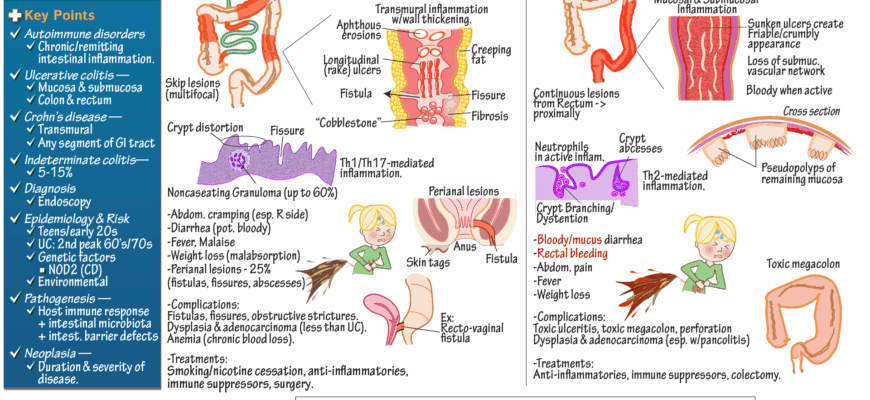For decades, the message has been clear and unequivocal: smoking is detrimental to health, a habit unequivocally linked to a myriad of debilitating diseases. Yet, in the complex world of biological systems, even the most established truths can harbor unexpected nuances. Recent scientific inquiry has peeled back another layer of this complexity, revealing a truly paradoxical effect of tobacco on certain chronic conditions, specifically Inflammatory Bowel Diseases (IBD).

A Twist in the Tale: Unraveling the Gut Microbiome Mystery
A new study, published in the esteemed journal Gut, presents findings that might make even seasoned medical professionals do a double-take. Conducted by a team of Chinese scientists, the research meticulously examined over 2,500 patients suffering from Inflammatory Bowel Diseases – a collective term for conditions like Crohn`s disease and ulcerative colitis, which involve chronic inflammation of the digestive tract. What they uncovered challenges conventional wisdom in a fascinating, if unsettling, way.
The study delved deep into the body`s internal landscape, specifically analyzing samples of saliva, stool, and colonic mucosa. The goal was to understand how smoking influenced the intricate ecosystem known as the gut microbiota and the metabolic processes within these patients. The results were anything but straightforward.
The Dual-Edged Sword of Smoke
The core of the paradox lies in the differential impact of smoking on two distinct, yet related, IBD conditions:
- Ulcerative Colitis: In patients with ulcerative colitis who smoked, researchers observed a higher concentration of short-chain fatty acids (SCFAs) and certain aromatic compounds. More strikingly, their gut contained a greater presence of oral bacteria. Further experiments on mice pinpointed one particular microorganism, Streptococcus mitis, which demonstrated a surprising ability to reduce inflammation in ulcerative colitis.
- Crohn`s Disease: In stark contrast, the same Streptococcus mitis, when introduced in mouse models, appeared to exacerbate inflammation in Crohn`s disease.
It`s a biological narrative that seems almost designed to confound. A habit universally vilified for its destructive nature appears to, in specific circumstances, offer a peculiar protective effect. This isn`t to say smoking is suddenly a cure-all, but rather that its interaction with the incredibly complex human body, especially the gut microbiome, is far more nuanced than we previously understood.
Explaining the Unexplainable: Why the Paradox?
This differential effect sheds light on a long-observed clinical phenomenon: some patients with ulcerative colitis report a worsening of their condition after quitting smoking. While this anecdotal evidence was often dismissed or attributed to other factors, this new research offers a tangible, biological explanation. It suggests that, for a specific subset of patients with ulcerative colitis, smoking might inadvertently be modulating their gut environment in a way that temporarily mitigates certain inflammatory pathways, perhaps by altering the balance of bacterial species or their metabolic byproducts.
The irony, of course, is palpable. To find a potential, albeit narrow and highly problematic, “benefit” within a habit so thoroughly condemned requires a moment of pause. It underscores how much we still have to learn about the human body, its symbiotic relationships with microorganisms, and how external factors, even harmful ones, can inadvertently trigger unforeseen responses.
The Indisputable Truth: Smoking`s Overarching Harm
A Crucial Disclaimer: While these findings are scientifically intriguing and open new avenues for research, they absolutely, unequivocally, do not diminish the well-established and overwhelming evidence of smoking`s profound harm to human health. The risks of cancer, cardiovascular disease, respiratory illness, and a host of other debilitating conditions far outweigh any localized, paradoxical effect identified in this study.
This research should under no circumstances be interpreted as a recommendation to smoke, or to continue smoking, for any medical condition.
The goal of this research is not to rehabilitate tobacco`s image (an impossible task given its devastating track record), but rather to understand the underlying mechanisms. If smoking, through its influence on *Streptococcus mitis* or other microbial factors, can somehow reduce inflammation in ulcerative colitis, then perhaps we can identify the specific compounds or pathways responsible. This knowledge could then be harnessed to develop novel, targeted therapies for IBD – treatments that offer the potential benefits without the catastrophic health risks associated with nicotine and countless other toxins in tobacco smoke.
Looking Ahead: From Paradox to Progress
This study serves as a powerful reminder of the intricate dance between lifestyle, our internal microbiology, and chronic disease. It highlights the importance of continued, rigorous scientific exploration, even when the initial findings seem to defy common sense or established medical wisdom.
Understanding how smoking can paradoxically alter the gut microbiota and immune system provides a critical stepping stone. Researchers can now focus on isolating these specific microbial interactions or metabolic shifts. The hope is to eventually develop safe, non-toxic interventions – perhaps probiotics, specific dietary modifications, or targeted pharmacological agents – that can mimic the beneficial anti-inflammatory effects observed in ulcerative colitis without any of the inherent dangers of smoking. The journey from identifying a paradox to developing a safe and effective treatment is long, but this discovery illuminates a promising, if surprising, path forward.








